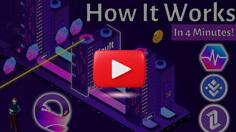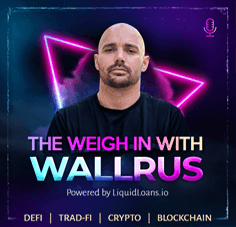What Are Blockchain Oracles and Why Are They Necessary?

If you’re a DeFi enthusiast or crypto investor, then you undoubtedly want to see blockchain succeed in a vast world of markets and use-cases.
Blockchains have the potential to make significant changes to the global financial system.
We have come a long way since Bitcoin’s genesis in 2010, but we still have many obstacles to maneuver to make the DeFi dream come true.
One such problem is the blockchain oracle problem.
Quick Takes
- The Blockchain Oracle Problem refers to the inability for blockchains and their smart contracts to access data from off-chain sources
- Blockchain oracles can take many forms including singular people, multisigs, or complicated decentralized and centralized protocols
- Blockchain oracles are necessary for providing price feeds to various protocols, supporting cross chain bridges and AMMs, and providing data to prediction markets
What Is The Blockchain Oracle Problem?
The Blockchain Oracle Problem refers to the fact that blockchains cannot access data from the external world and need a trustworthy method to do so.
By now, most blockchains can maintain consensus for on-chain activities. For example, verifying a signed transaction with the correct private key or that funds were sent to the correct address.
However, for blockchains to reach their fullest potential and access as many markets and use-cases as possible, they need access to off-chain data.
Two core problems need to be solved:
#1 How Do We Connect Blockchains and Off-Chain Data Sources
For example, how does a smart contract on PulseChain know what the value of ETH is on Ethereum? Or, how does PulseChain know what the weather is like in Australia?
#2 Who Gets To Put In the Information
For example, the data provider could have financial incentives to input inaccurate prices because they could gain from liquidations.
Or the data provider could have a financial incentive to enter incorrect information about liquidity between Hex and eHex.
These two questions form the crux of the blockchain oracle problem.
What are Blockchain Oracles?
Blockchain oracles are simply devices which facilitates the communication between a blockchain and another blockchain or between blockchain and another external data source.
Oracles have been a well-defined part of computer science for many years now. In blockchain, oracles can take many forms including:
- Singular Person. However, you can imagine the risks involved with trusting a single person to input the correct information. People die, people lie, people miss their alarms, people fat finger information, etc.
- A Multisig. Multisigs are 2 or more people who have to cosign the input of information. This is one step up in reliability from a singular person, however multisig can still be centralized and hold collective nefarious intentions.
- An Automated API Call. Price feeds could be called from a decentralized or centralized exchange for example. If pulled from a DEX, prices could move in a volatile fashion due to thin liquidity or market manipulation. If pulled from a CEX, prices could be manipulated by admin keys.
- Delegated Proof-of Stake. Users can stake tokens with the delegated node that they want to represent the data provider.
- Any other model of consensus. For example, data providers could be incentivized to input data via compensation. However, they could be forced to put up stake which could be taken from them if they misbehave.
Although blockchains take many forms, their functions remain the same: provide accurate and reliable data to wherever it needs to go.
What are Blockchain Oracles Commonly Used For?
- Price Feeds. Smart contracts like Liquid Loans are dependent on price feeds in order to function. Since the Liquid Loans Vaults require a 110% ratio to avoid liquidations, the protocol needs price feeds for PLS and USDL. Liquid Loans uses Fetch Oracle, a decentralized blockchain oracle native to PulseChain.
- Prediction Markets. If people want to bet on real-world outcomes (i.e. Who won the football game last night in England), they need an oracle to input that information into their smart contract.
- Insurance. If a protocol wanted to provide insurance on blockchains, they need weather data.
- Blockchain Bridges. Oracles are necessary for users to bridge assets between different blockchains. For example, if a user wants to bridge ETH directly into PLS, an oracle needs to provide the prices of each in order to setup the ratios for the swap.
- Cross-chain AMMs. Decentralized Exchanges typically have fractured liquidity. Meaning that UniSwap v3 on Ethereum, for example, will not know about the liquidity on PulseX on PulseChain. In order for them to access each others data, they will need oracle support.

Final Thoughts
- Blockchains oracles provide data for off-chain activites such as price feeds, liquidity data, sports outcomes, weather data, etc.
- Protocols must be built in order to provide this data in an expedient, accurate, and reliable manner
- Not all blockchain oracles are created equal. Learn here about the difference between centralized and decentralized blockchain oracles.
Join The Leading Crypto Channel
JOINDisclaimer:Please note that nothing on this website constitutes financial advice. Whilst every effort has been made to ensure that the information provided on this website is accurate, individuals must not rely on this information to make a financial or investment decision. Before making any decision, we strongly recommend you consult a qualified professional who should take into account your specific investment objectives, financial situation and individual needs.

Connor
Connor is a US-based digital marketer and writer. He has a diverse military and academic background, but developed a passion over the years for blockchain and DeFi because of their potential to provide censorship resistance and financial freedom. Connor is dedicated to educating and inspiring others in the space, and is an active member and investor in the Ethereum, Hex, and PulseChain communities.

Development
Knowledge
Subscribe To Newsletter
Stay up-to-date with all the latest news about
Liquid Loans, Fetch Oracle and more.
Copyright © 2024 Crave Management.
All Rights Reserved.

The LL Librarian
Your Genius Liquid Loans Knowledge Assistant




